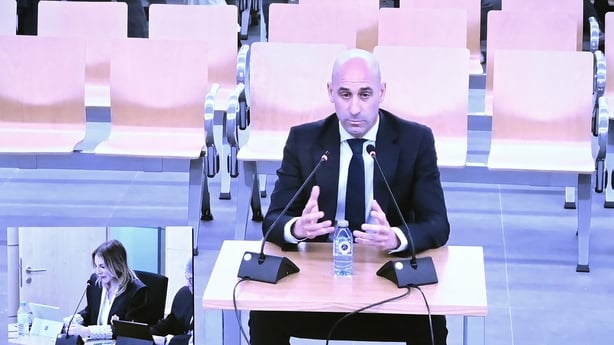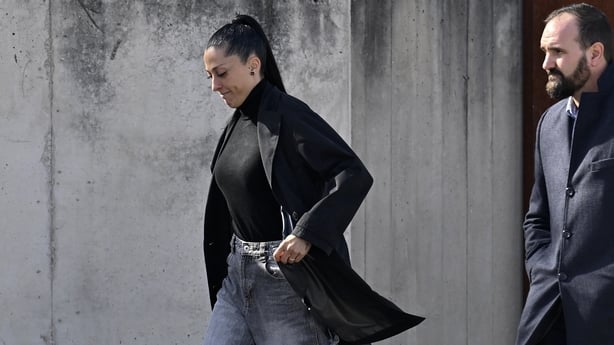Spain's former soccer federation boss Luis Rubiales has told a court that player Jenni Hermoso had given her consent for the kiss on the mouth that triggered his trial for sexual assault and sparked a debate in Spain about sexism in women's football.
"I am absolutely sure that she gave me her permission," Mr Rubiales told the court in Madrid. "I asked her: 'Can I give you a little kiss?' She said: 'all right.' That's what happened."
Mr Rubiales, 47, is accused of sexual assault for kissing Ms Hermoso on the mouth and then attempting to coerce her - with the help of three other former soccer federation officials - into publicly saying the kiss at the 2023 World Cup awards ceremony in Sydney was consensual.
He has denied the charges, insisting the kiss was consensual, while Ms Hermoso has said it was not.
The moment was witnessed by millions of television viewers and an entire stadium after the Spanish women’s team won the 2023 World Cup. The ensuing uproar gave momentum to a 'Me Too' movement in the Spanish women's game, in which players sought to combat sexism and achieve parity with their male peers.
Asked whether he normally kissed people on the lips, Mr Rubiales told the court the occasion and the fact he had known Ms Hermoso for a long time warranted it. He said he would do something similar with a male player or to one of his daughters during New Year celebrations.

The prosecution is seeking 2-1/2 years' prison for Mr Rubiales. In Spain, people handed sentences of under two years can usually avoid prison time by paying damages instead if they do not have prior convictions.
Alongside Mr Rubiales, former women's national team coach Jorge Vilda, former Spanish football federation (RFEF) sporting director Albert Luque and the RFEF's former head of marketing Ruben Rivera are also on trial for their suspected roles in pressuring Ms Hermoso.
They also have denied the charges.
After Spain beat England in Sydney on 20 August 2023, Mr Rubiales clutched his crotch in celebration on the final whistle while standing near Spain's Queen Letizia and her daughter Princess Sofia.
We need your consent to load this rte-player contentWe use rte-player to manage extra content that can set cookies on your device and collect data about your activity. Please review their details and accept them to load the content.Manage Preferences
Later, during the medal presentation, he appeared to lift Ms Hermoso off her feet then grabbed her by the head and pulled her toward him to kiss her on the lips.
Mr Rubiales said there was no sexual intent in the kiss and that he believed it did not constitute a crime. However, he said he had realised almost immediately that the gesture was a mistake.
"I messed up, it's obvious at this point. I should have played a more institutional role," he said.
Testifying last week, Ms Hermoso said she did not agree to the kiss and that the furore had tainted what should have been one of the happiest days of her life.

She said she was pressured to agree to a statement downplaying the kiss and that when she refused, Mr Vilda approached her brother and told him that her career would suffer if she did not help defuse mounting indignation on social media about the kiss.
Mr Rubiales denied ordering Mr Vilda to approach Ms Hermoso's brother and said the former coach had done so "to help her".
A verdict in the case is expected in March, about a month after witness testimony ends.
Mr Rubiales has cast himself as the victim of a campaign by "false feminists". He initially refused to step down as president of the federation but later relented and was subsequently banned by soccer’s governing body FIFA from all football-related activities for three years.

